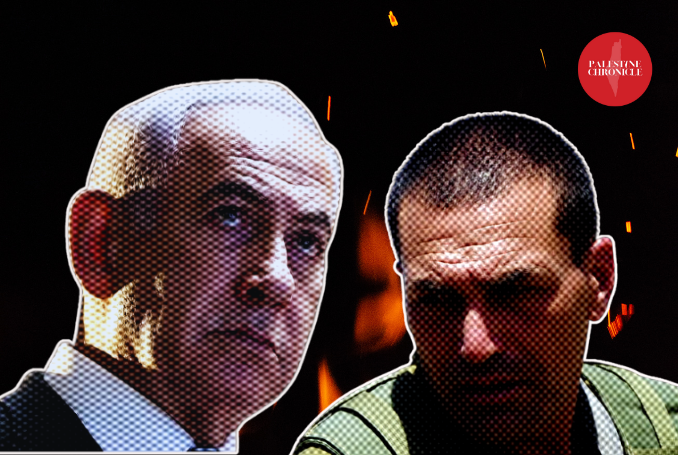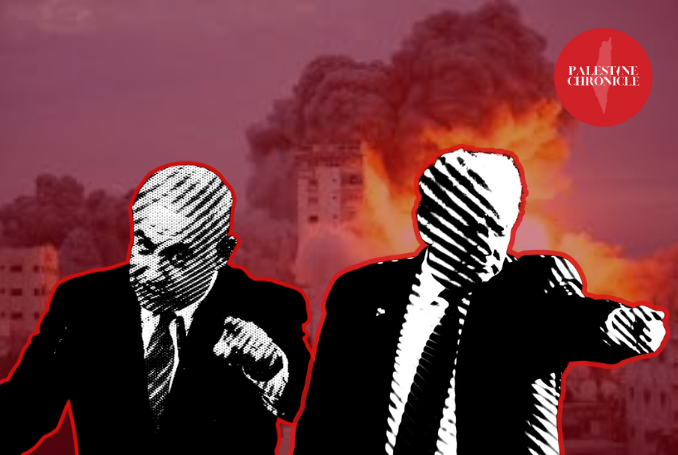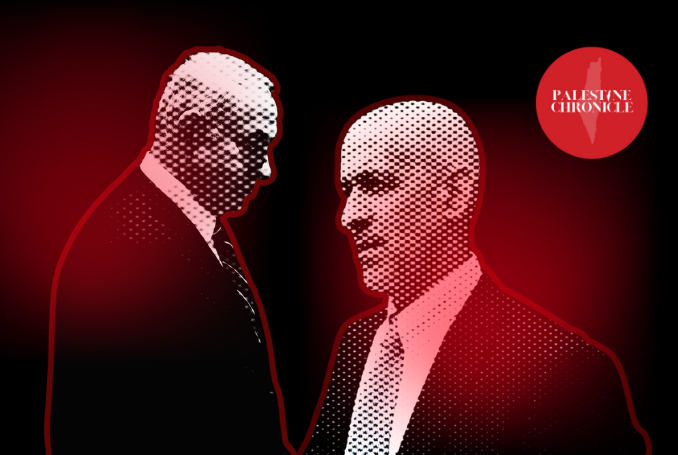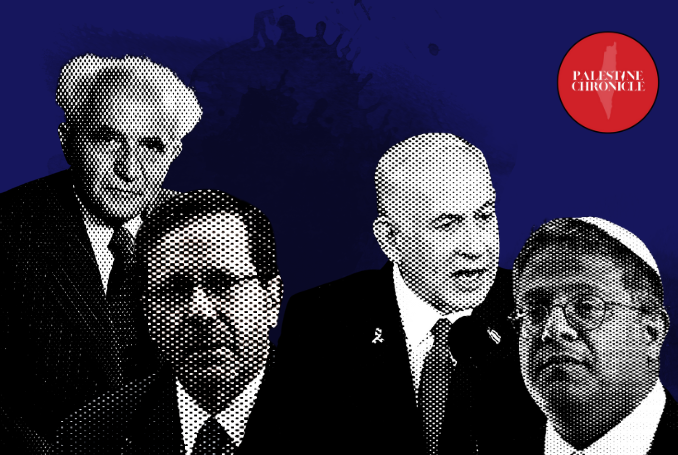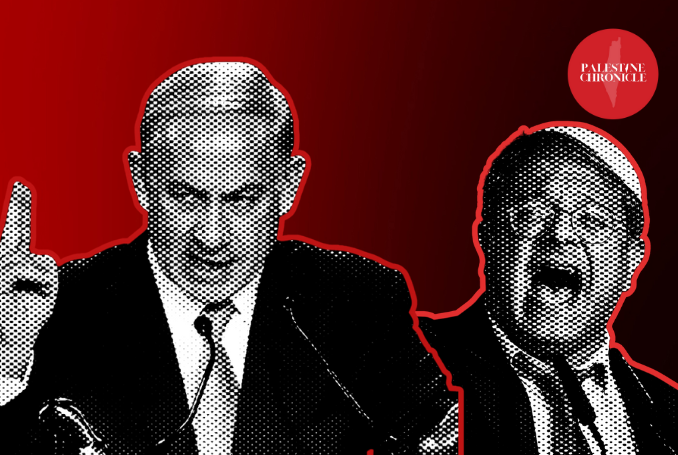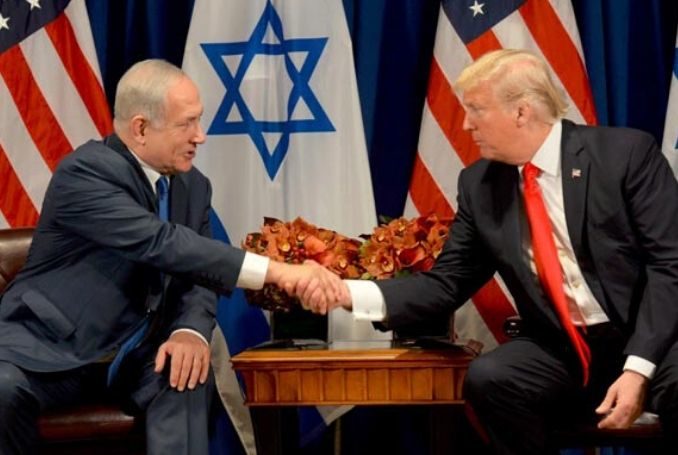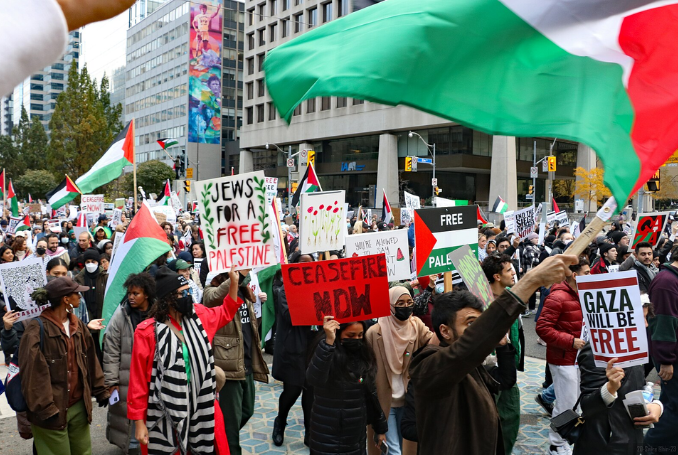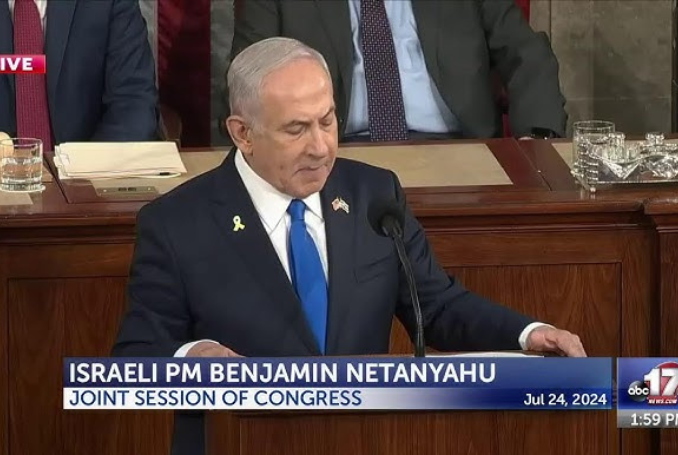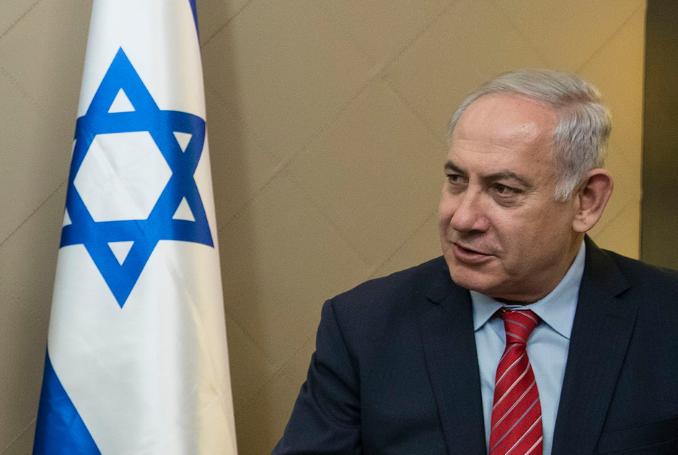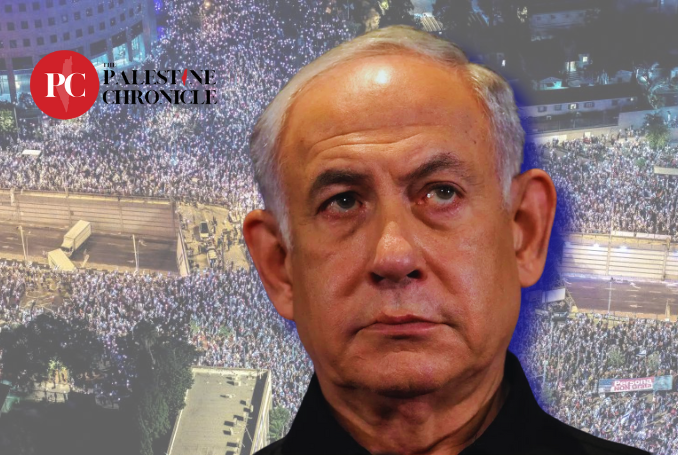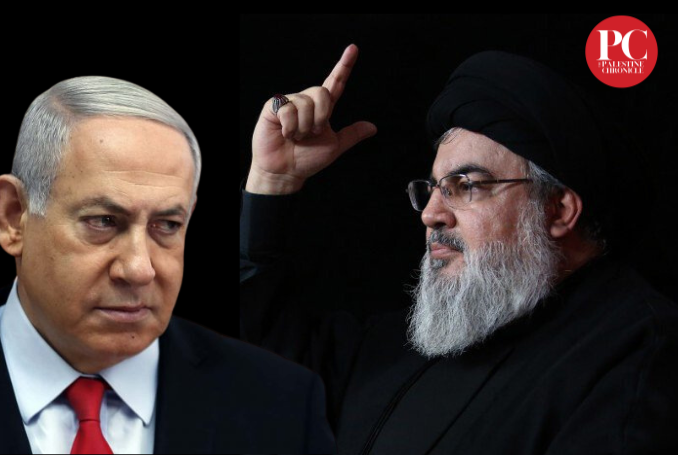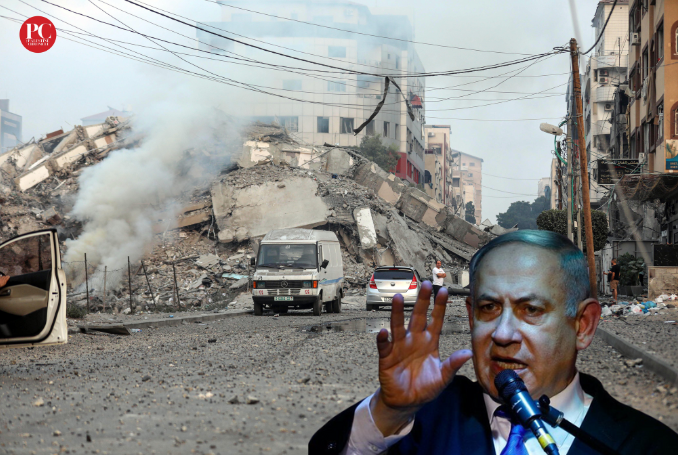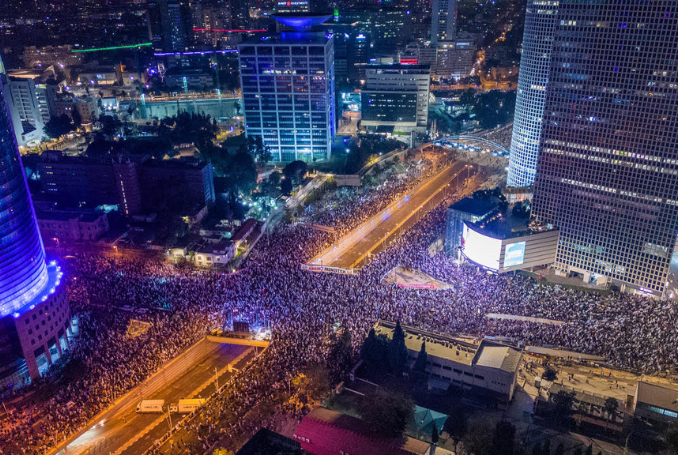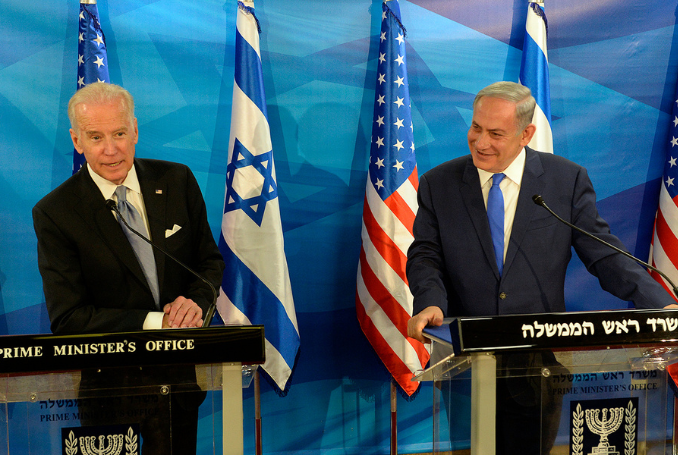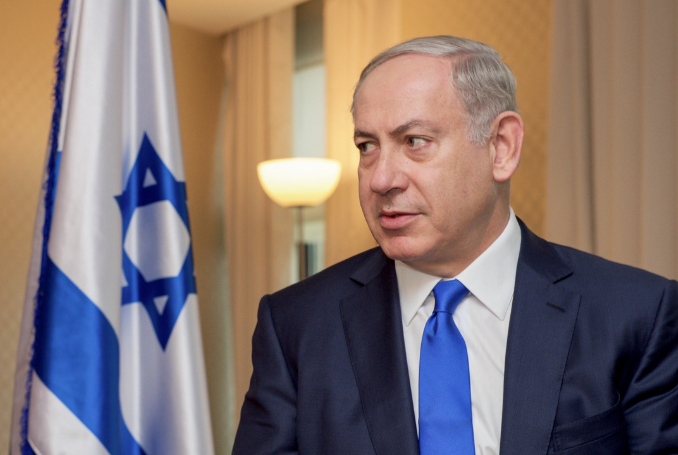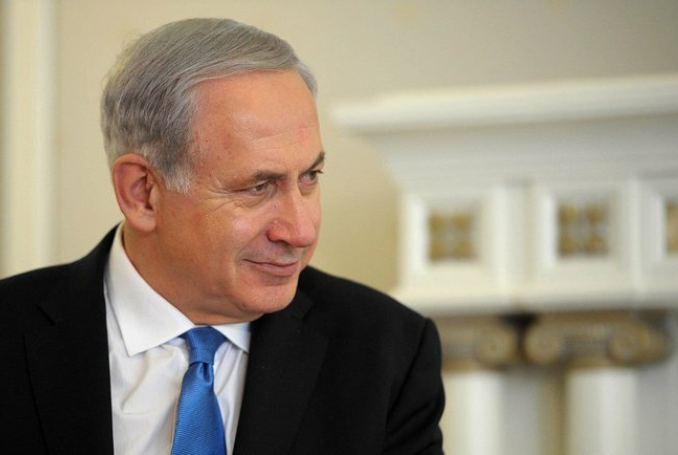- June 1, 2025
Gaza’s Eleventh Hour: Swift Global Intervention Can Halt Genocide
While one welcomes the significant shifts in the West’s position against Israel, it must remain abundantly clear that Netanyahu has no genuine interest in abandoning his plan of starving and ethnically cleansing Gaza.
Netanyahu’s Endgame: Isolation and the Shattered Illusion of Power
It remains uncertain how long Netanyahu will remain in power, but his political standing has significantly deteriorated. He faces widespread domestic opposition and international condemnation.
Gaza’s Graveyard of Illusions: How Israel’s Narrative Collides with Military Failure
Israel has clearly failed to secure any genuine or lasting victory, and the obvious solution is for Israel to be reined in and held accountable for its crimes in Gaza and throughout Palestine.
Screaming Soldiers and Open Revolt: How One Video Unmasked Israel’s Internal Power Struggle
Eyal Zamir, who had already committed that “2025 will be a year of war,” seems less inclined now to escalate the war beyond Israel’s ability to sustain it.
Beneath the Surface: Is the Trump-Netanyahu ‘Unthinkable’ About to Erupt?
Netanyahu’s political standing is diminished. He is perceived as a failed political leader and military strategist, unable to secure decisive victories or extract political concessions from his adversaries.
The Politics Behind Netanyahu’s Shin Bet Scandal, and the Trump Factor
Netanyahu’s actions have violated a longstanding taboo, further exacerbating Israel’s already unprecedented internal crisis.
Civil War on the Horizon? The Ashkenazi-Sephardic Conflict and Israel’s Future
Though the Ashkenazis are losing most of their political power, they continue to hold most of their economic cards, which could lead to disruptive strikes and civil disobedience.
Ben-Gvir, Netanyahu, and the Deadly Dance of Power in Gaza
By Ramzy Baroud In a genocidal war that has spiraled into a struggle for political survival, Israeli Prime Minister Benjamin Netanyahu’s coalition and the global powers supporting him continue to sacrifice Palestinian lives for political gain. The sordid career of Israel’s extremist National Security Minister, Itamar Ben-Gvir, epitomizes this tragic reality. Ben-Gvir joined Netanyahu’s government […]
Unpredictable Politics: Trump, Palestine, and the Middle East – A Cairo Review Analysis
In my latest article, I examine the unpredictable nature of Trump’s Middle East policies, particularly on Palestine, and analyze the potential impact of his second term on U.S. relations with the region.
When Partners Become Enemies: Can Netanyahu Maintain Control After the War?
This article is written by Ramzy Baroud, offering an in-depth analysis of the political dynamics surrounding Yoav Gallant’s resignation and Netanyahu’s strategy in the ongoing Gaza war.
A Nation in Denial: Rebranding Old Fantasies Will Not Save Israel
Since this crowd is motivated by extremist religious ideologies, they are unable to abide by any form of rational thinking, even that emanating from well-regarded Zionist figures inside Israel itself.
Israel’s Biblical Wars of ‘Self Defense’: The Myth of the ‘Seven War Fronts’
There is a difference between a country fighting a defensive war on multiple fronts and another fighting for colonial expansion.
Cartography of Genocide: Why Netanyahu Erased Palestine from the Map
For him, Palestinians are nomadic beings who, by mere historical incident, ventured into his biblical land, in which they have no claim or right.
Zionism Vs. Zionism – Are the Kahanists Accelerating the ‘Collapse of Israel’?
Kahanism here is a reference to the Kach Party of Rabbi Meir Kahane. Though now banned, Kach has resurfaced in numerous forms, including in Ben-Gvir’s Otzma Yehudit party.
A Strategic Shift – Will Palestinian Groups Return to ‘Martyrdom Attacks’ inside Israel?
By denying Israelis any sense of security in major cities inside Israel, the Israeli public could, once more, turn against Netanyahu for failing to deliver on any of his lofty promises.
Zionism on the Brink: The Gaza War Beyond Netanyahu
Even if the Israeli right has lost all faith in Netanyahu, without him as a unifying figure, all is lost, not only the chances of the far-right camp to redeem itself, but also the very future of Zionism.
The Failed Palestine Reset: How Netanyahu Engineered His Own Irrelevance
When Netanyahu mattered, his speeches often led to wars, or major regional instability. But Netanyahu no longer matters, except for a few US politicians vying for re-election.
Rekindling the Old Love Affair: Can Trump Save Netanyahu?
Trump’s politics is abashedly Machiavellian. During his only term in office between 2017 and 2021, he served the role of the American genie, granting Israel’s every wish.
The Altalena Affair: Is Israel Heading towards a Civil War?
“There will be no civil war” in Israel, Israeli Prime Minister Benjamin Netanyahu said on June 18. But he might be wrong.
‘Wishful Thinking’ – Does Israel Have All the Cards in Gaza?
Netanyahu does not seem to have an actual plan for Gaza, neither for now nor after the war. So, he prolongs the war despite the fact that his army is exhausted, depleted and is being forced to fight on multiple fronts.
Israel’s Irremediable Defeat: On Tel Aviv’s Other Unwinnable War
All of Netanyahu’s political shenanigans, which served him well in the past, would fall short from allowing him to return to power.
A ‘Genocidal Maniac’: What is Netanyahu’s Ultimate Goal in the Middle East?
Netanyahu must be restrained. If not, the Israeli genocide in Gaza will multiply into other genocides throughout the Middle East.
Netanyahu’s Impossible Options in Gaza: To Invade or Not to Invade
Netanyahu is desperate to show that Israel remains a powerful country and a regional power that deserves its often-touted status of having an ‘invincible’ army.
Tel Aviv’s Losing Brands: Israeli ‘Coup’ and the Death of False Democracy
Certainly, what is taking place in ‘democratic’ and ‘stable’ Israel is truly unprecedented. Israel’s current vulnerability is accentuated by the massive and rapid changes to the political map of the Middle East and the world.
US and Israel: Is the ‘Unbreakable Bond’ Finally Breaking?
Though much of Israel’s self-proclaimed ‘independence’ was an outcome of unconditional US support, Israelis hardly acknowledge this fact.
The Resistance vs. the Palestinian Authority: Will Abbas Lead Palestinians to Civil War?
To live up to Israel’s expectations and to ensure its survival, the PA is willing to clash directly with Palestinians who refuse to toe the line.
No Palestinian State and the PA ‘Works for Us’: Netanyahu’s Remarks Should Inspire Paradigm Shift
Now, armed with a stable coalition, immune from any meaningful criticism, let alone tangible consequences to his action, the Israeli leader feels ready to carry out his right-wing agenda without further hesitation.
A Man Without a Strategy: How Netanyahu is Provoking Armed Intifada in the West Bank
For Netanyahu, the frequent deadly raids on Palestinian towns and refugee camps translate into political assets that allow him to keep his extremist supporters happy. But this is short-term thinking.
Not On Our Dime!’: Why US Democrats Are Growingly Challenging Israel
Time will tell what direction Washington will take in the future. But, considering the current evidence, support for Israel is dwindling at rates that are unprecedented.
New Rules of Engagement: How Palestinians Defeated Netanyahu and Redefined ‘Unity’
It is the unity of those resisting on the ground, from Gaza to Nablus, and from Jenin to Sheikh Jarrah, that matters most.





